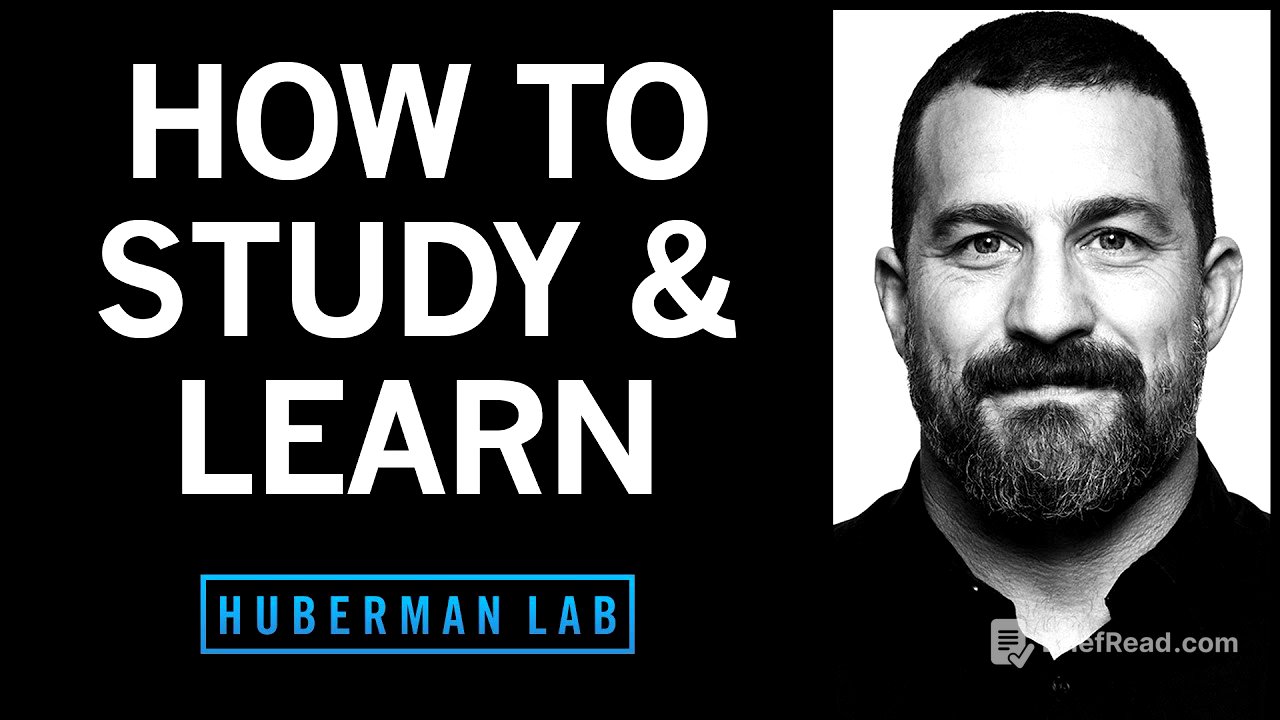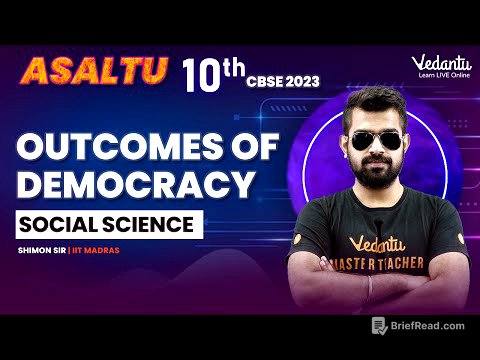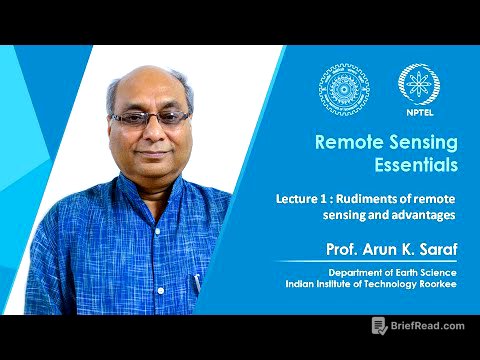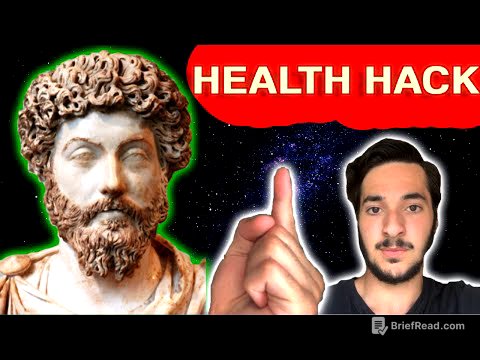TLDR;
This episode of the Huberman Lab podcast explores science-backed strategies for effective studying and learning, highlighting that the best methods are often counter-intuitive. It emphasises offsetting forgetting through active engagement, periodic self-testing, and leveraging sleep for neuroplasticity. The podcast also covers practical tools such as mindfulness meditation, non-sleep deep rest (NSDR), and specific study habits of successful students, stressing the importance of emotion and interleaving information for enhanced memory and mastery.
- The best learning practices are not intuitive.
- Focus on offsetting forgetting rather than just learning.
- Testing is a powerful tool for learning, not just evaluation.
- Sleep and NSDR are crucial for neuroplasticity and memory consolidation.
- Emotion and interleaving enhance learning and retention.
Improve Studying & Learning [0:00]
The podcast introduces the topic of effective studying and learning strategies, highlighting that the most effective methods are often not intuitive. It aims to provide science-based tools for improving memory and the application of knowledge in various life areas. The discussion is relevant for students and anyone seeking to learn new information from sources like the internet or podcasts. The core message is that traditional beliefs about optimal study methods are frequently incorrect, and the episode will explore research-backed strategies for better learning.
Sponsors: Eight Sleep, BetterHelp & Waking Up [2:11]
Huberman thanks the sponsors of the podcast, including Eight Sleep, which offers smart mattress covers with cooling, heating, and sleep tracking. He emphasises the importance of maintaining an optimal sleeping environment for quality sleep. BetterHelp, an online therapy service, is also mentioned, highlighting the benefits of regular therapy for mental health. Waking Up, a meditation app, is discussed as a tool for improving focus, managing stress, and enhancing mood through mindfulness meditation and Yoga Nidra.
Offsetting Forgetting [6:45]
The discussion shifts to the core principle of effective learning: offsetting the natural process of forgetting. Instead of focusing solely on learning and retaining information, the emphasis should be on actively combating the inevitable forgetting that occurs after exposure to new material. This approach applies to all forms of learning, whether cognitive, motor, musical or mathematical. The goal is to inoculate against forgetting, which leads to better memory and mastery of the subject matter.
Learning & Neuroplasticity [8:22]
Learning is explained through the lens of neuroplasticity, the nervous system's ability to change in response to experience. Neuroplasticity involves strengthening and weakening synaptic connections between neurons. While neurogenesis (the addition of new neurons) is often highlighted, it plays a minor role in learning and memory compared to the modification of existing connections. The removal or weakening of connections is crucial for skill acquisition, as it refines neural circuits, improving coordination and precision.
Periodic Testing [13:06]
To illustrate the importance of periodic testing, Huberman conducts a brief quiz on the material covered so far. This exercise demonstrates that testing is not just an evaluation tool but a method for offsetting forgetting and reinforcing learning. By actively recalling information, learners strengthen their memory and identify gaps in their knowledge. This approach sets the stage for a deeper exploration of testing as a key study strategy.
Focus & Alertness, Sleep, Tool: Active Engagement [16:09]
Practical aspects of studying and learning are addressed, emphasising the importance of focus and alertness. Active engagement with the material is crucial, requiring learners to be both alert and focused. This active attention cues the nervous system to initiate neuroplastic changes, strengthening or weakening neural connections to retain information. Prioritising sleep is highlighted as the best way to enhance alertness and focus, making it an essential component of effective studying.
Tool: Improve Focus, Mindfulness Meditation, Perception Exercise [21:37]
The discussion provides tools for improving focus, including mindfulness meditation. Regular mindfulness practice, even for just 5-10 minutes a day, can significantly improve focus and memory. This involves sitting or lying down, closing the eyes, and focusing on breathing, bringing attention back when it drifts. Alternatively, a perceptual exercise involving focusing on a visual target with eyes open can also enhance attention. These practices train the nervous system to maintain focus, which is critical for effective learning.
Sleep & Neuroplasticity, Tool: Non-Sleep Deep Rest (NSDR) [24:38]
The podcast underscores that neuroplastic changes primarily occur during deep sleep and sleep-like states. The reordering and strengthening of neural connections happen during rapid eye movement (REM) sleep, which predominates in the latter half of the night. Getting sufficient sleep is essential for consolidating learning. Non-Sleep Deep Rest (NSDR), a 10-20 minute practice, is recommended as a tool to restore mental and physical vigour, especially when sleep is insufficient, enhancing neuroplasticity.
Tools: Study Habits of Successful Students [28:29]
The study habits of successful students are examined, based on a survey of nearly 700 medical students. Key habits include scheduling dedicated study time, minimising distractions by putting phones away, and studying alone. The best students typically study for three to four hours per day, broken into two or three sessions, and make an effort to teach their peers. Teaching others reinforces their own understanding and develops mastery of the material.
Sponsor: AG1 [36:21]
A quick break to acknowledge the sponsor AG1, a foundational nutritional supplement containing vitamins, minerals, probiotics, prebiotics, and adaptogens. AG1 supports overall health, energy, the immune system, and the gut microbiome, which are critical for brain function, mood, and physical performance.
Studying & Aspiration Goals; Challenging Material [37:33]
The discussion returns to the study habits of effective medical students, noting that their motivation often stems from a long-term understanding of how their success will impact their family and life. This aspirational outlook helps them persevere through challenging material. The podcast highlights that studying that feels difficult is the most effective, as effort is a cornerstone of learning.
Tool: Testing as a Learning Tool [42:54]
Huberman reinforces the concept of testing as a learning tool by conducting another quiz. He references a classic 1917 study where children who read biographies once and then tested themselves outperformed those who reread the biographies multiple times. This underscores that actively recalling information is more effective than passive rereading.
Self-Testing, Repeated Testing [48:23]
A more recent study is presented, comparing different study methods: studying material four times (SSSS), studying three times and then testing (SSST), and studying once and then testing three times (STTT). The results show that performance on a final test is proportional to the number of tests taken, emphasising that repeated testing locks material into neural circuits more effectively than repeated studying.
Testing Yourself & Knowledge Gaps [55:29]
The podcast highlights a surprising finding: students who study material multiple times think they will perform best, while those who are tested multiple times think they will perform worst. However, the opposite is true. Testing, even with errors, is more effective for long-term retention. Huberman shares his personal experience of using self-testing to master neuroanatomy, emphasising that recognising knowledge gaps is a key aspect of effective learning.
Sponsor: LMNT [1:01:11]
A quick break to thank the sponsor LMNT, an electrolyte drink with sodium, magnesium, and potassium but no sugar. Proper hydration and electrolyte balance are critical for brain and bodily function, enhancing cognitive and physical performance.
New Material & Self-Test Timing [1:02:23]
The timing of self-testing is explored, referencing a study where students were either tested immediately after exposure to new material or after a delay. The best performance came from testing soon after the initial exposure, as opposed to delaying the first test. This immediate testing offsets the natural forgetting of new material, making it a crucial strategy for effective learning.
Familiarity vs Mastery [1:07:21]
The discussion distinguishes between familiarity and mastery. Repeated exposure to material leads to familiarity, but testing is essential for achieving mastery. Testing involves actively recalling information, which cues the nervous system to lock in correct information and correct errors. This process is fundamentally different from passive exposure and re-exposure.
Self-Testing & Offsetting Forgetting [1:10:55]
Huberman shares that self-testing can improve retention by approximately 50% compared to just being exposed to the material. He emphasises the importance of thinking about learning in terms of offsetting forgetting. He regrets not having used self-testing more during his education, as it would have saved him a lot of time and effort.
Best Type of Self-Tests; Phone & Post-Learning Distractions [1:15:53]
The best self-tests are open-ended and short-answer questions, requiring recall rather than recognition. While multiple-choice tests can be useful, open-ended questions promote deeper understanding. Avoiding distractions, such as immediately using a phone after learning, is crucial to allow for self-testing and memory consolidation.
Tool: Gap Effects; Testing as Studying vs. Evaluation [1:22:03]
Gap effects, which involve periodic pauses during learning, are discussed. These pauses allow the hippocampus to repeat information, enhancing memory consolidation. The podcast reiterates that testing as a form of studying is not for evaluation but for revealing what you know and don't know, and for reinforcing learning.
Tool: Emotion & Learning, PTSD, Deliberate Cold Exposure, Caffeine [1:25:40]
The role of emotion in learning is explored, noting that emotionally laden experiences are remembered more durably. This is linked to the neuromodulators deployed during stressful events, such as epinephrine and norepinephrine. The podcast references a medieval practice of throwing people into cold water to consolidate memory, connecting it to modern understanding of stress and memory. Deliberate cold exposure and caffeine can enhance learning through similar mechanisms.
Tool: Interleaving Information; Unskilled, Mastery & Virtuosity [1:33:28]
Interleaving information, which involves incorporating seemingly random anecdotes or unrelated information during learning, is presented as a tool to enhance overall learning ability. This technique allows the brain to incorporate new information with existing knowledge. The podcast concludes by distinguishing between unskilled, skilled, mastery, and virtuosity, emphasising that the goal is to achieve skill and mastery through effective learning strategies.
Zero-Cost Support, YouTube, Spotify & Apple Follow & Reviews, Sponsors, YouTube Feedback, Protocols Book, Social Media, Neural Network Newsletter [1:39:10]
Huberman encourages listeners to support the podcast by subscribing to the YouTube channel, following on Spotify and Apple, leaving reviews, and checking out the sponsors. He also promotes his new book, "Protocols: An Operating Manual for the Human Body," and encourages listeners to follow him on social media and subscribe to the Neural Network Newsletter for more science-based tools and protocols.









